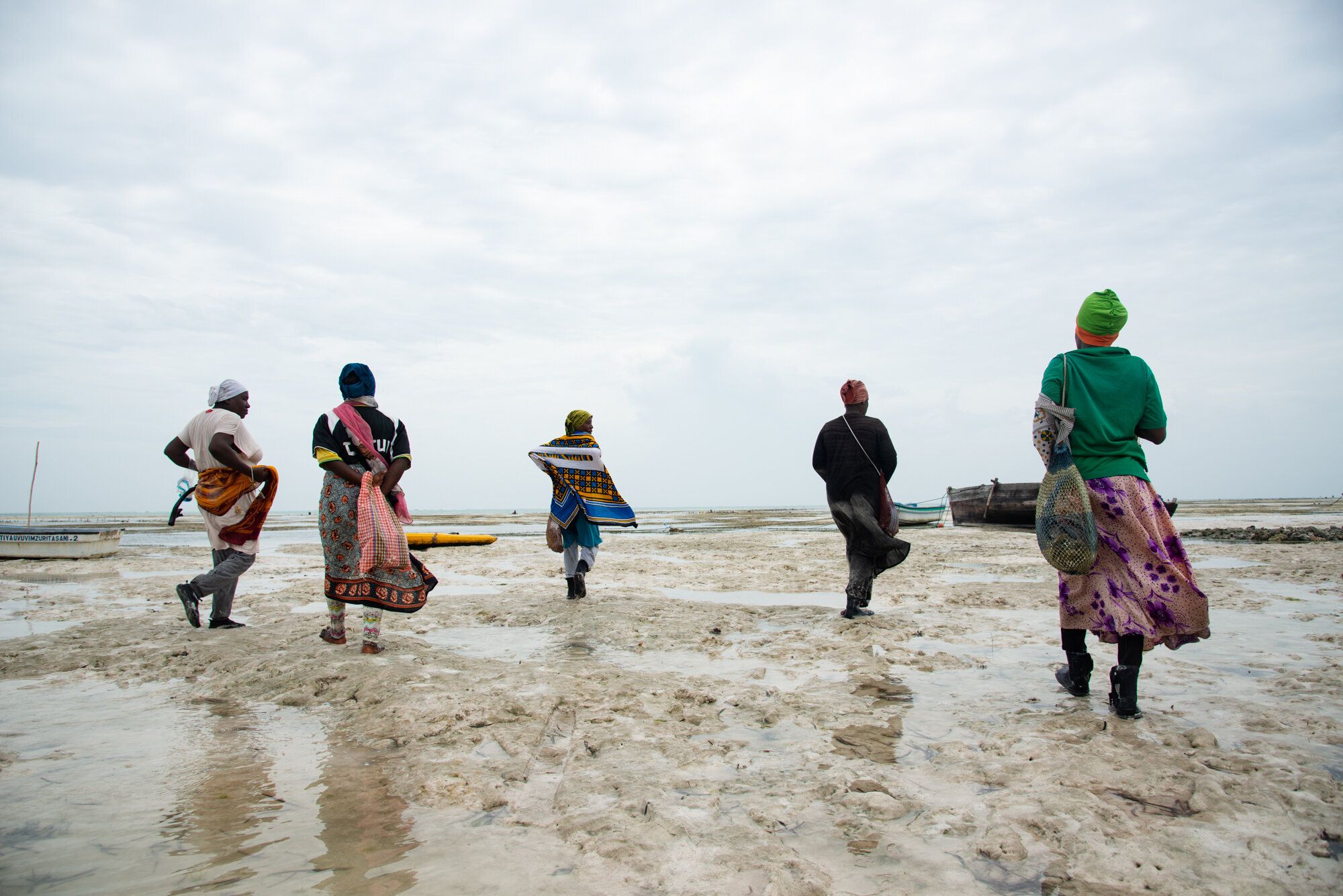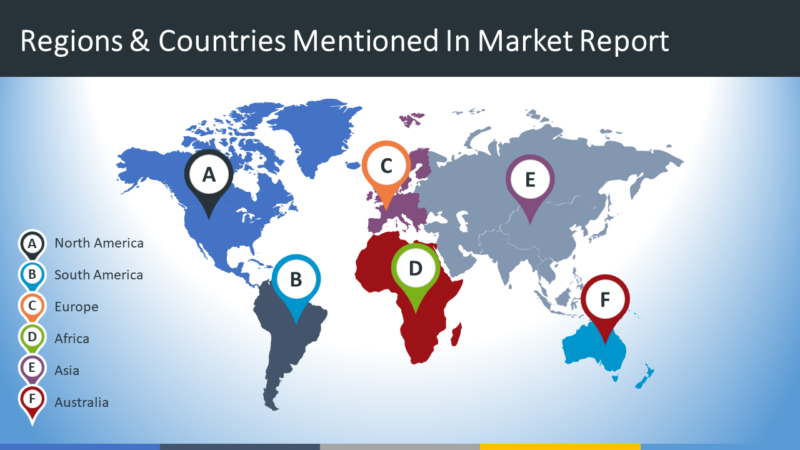
JAMBIANI, Zanzibar– As the trend declines, sand apartments develop coming from the once-deserted seaside and also the glowing blue ocean hums along with task. There is actually a brand new moon– it is actually bamvoua, “the moment along with the reduced trends” in the regional language of Kiswahili.
Women putting on vibrant textiles referred to as kanga host containers as they scour in soft sand trend swimming pools and also kids fish in the lagoons along with internet and also lines. Better out, much past the remainder, a team of girls stroll keeping snorkels, hides, fit together blades and also bags. They converse and also grin as they evade bristly ocean urchins on their 20- little hike with great, awkward sand to often tend to their submersed ranches.
Historically, this region was actually controlled through algae ranches– there are actually countless algae planters in between Jambiani and also Kenya to the north, much of all of them giving uncommon tasks for girls– yet environment modification has actually created expanding algae more and more hard as water temps in superficial shallows come to be also very hot for algae to make it through.
For these girls paddling bent on ocean, an unfamiliar, even more resistant and also successful plant has actually developed: sponges. There are actually merely a handful of sponge ranches on the planet, primarily in the Federated States of Micronesia and also various other Pacific nations. These scrounge ranches on the southeast shoreline of Zanzibar’s Unguja Island are actually the 1st in the West Indian Ocean.
All 11 sponge planters in the seaside community of Jambiani are actually girls, a lot of all of them singular mamas. The girls possess and also operate their personal ranches complying with a perennial instruction established through regional preservation non-profit Marinecultures, and also they gain approximately 5 opportunities greater than algae planters. The job certainly not merely encourages all of them as they help in the regional economic situation yet it additionally provides the freedom to reside in a considerably costly area and also get out of girls’s conventional duties on the Muslim isle.
Jennifer Adler.
Zedi Abdallah Abdallah rests outside her property along with her boy. She has actually been actually a sponge planter for pair of years. She mentions that sponge farming possesses much better enabled her to attend to her kids and also her standard necessities. Typically, she mentions, there is actually no job.
” There is actually no work with many girls,” stated Zedi Abdallah Abdallah, as she stores an individual child in her tour. She has actually cultivated sponges for pair of years. “It has actually aided me a great deal through permitting me to get outfits for my kids, get furnishings, and so on. I would certainly just like even more girls to become taken part in sponge farming to ensure that our experts might help all together.”
Marinecultures was actually established in 2008 along with the target of developing sponge farming in the area. The NGO is actually led through taking care of supervisor Christian Vaterlaus and also his partner, Connie, that are actually each coming from Switzerland yet have actually phoned Jambiani residence for recent 15 years. Vaterlaus is actually high along with a kind smile and also is actually reasonable along with his know-how. Out on the sponge ranches, he perfectly switches over in between Kiswahili and also English.
When they began Marinecultures in Jambiani, “the major target was actually to make tasks where individuals may be private,” stated Vaterlaus. He performed certainly not really want the tasks to become connected to tourist given that it may be undependable along with national politics or even violence (and also currently pandemics), plus, individuals that operate in the market typically talk English and also are actually worked with coming from landmass Tanzania.
The goal, stated Vaterlaus, is actually to at some point no more be actually entailed in any way, along with natives completely taking care of business.
The sponge ranches were actually 1st established in between 2010 and also 2011 when Vaterlaus and also regional partners accumulated 600-800 sponge pieces coming from around Zanzibar to make a baby room in much deeper waters. The pieces expanded on ropes there certainly till they prepared to vegetation on the brand new ranches that still exist today.
Jennifer Adler.
Best left: Christian Vaterlaus produces seeds coming from the sponge baby’s room to vegetation in the ranches. Best right: Sponges await a ranch over a bedroom of seagrass. Base placed: Divers silhouetted on the sponge baby’s room, which is actually residence to 10,000 sponges. The baby’s room hinges on much deeper water near the sponge ranches. Base right: Kazija Omar Ali has a tendency to sponges on her ranch as her kanga streams in the water.
The baby’s room is actually currently residence to greater than 10,000 of the water invertebrates (like coral reef, they show up plantlike yet are in fact extremely easy pets). Some sponges have actually sympathized greater than 7 years, giving a long-lasting resource for cuttings, referred to as “seed”– the planters harvesting 800 of these pieces each month coming from the baby’s room and also utilize all of them to expand brand new sponges in the close-by, shallow-water ranches.
Last year, they marketed and also expanded regarding 500 sponges, which individuals make use of worldwide for bath time, cosmetics, and also little one treatment.
The industrial sponge gathering field performs certainly not possess wonderful ecological references. Concerning 99% of the sponges marketed around the globe are actually untamed collected, as opposed to farmed, depending on to Vaterlaus. Collecting coming from bush has actually greatly erased sponge populaces in various other aspect of the planet– a trouble lots of nations in the Mediterranean possess lengthy fought with.
As soon as the facility of the sponge profession,
Greece was actually. Due to the very early 1900 s, nonetheless, the nation had actually manipulated its own all-natural sponge populaces and also relocated to waters bordering Egypt, Libya and also Tunisia. In the 1930 s, sponge scuba divers in the Mediterranean collected almost 350 lots of sponges annually. After overharvesting in being actually and also bordering waters disallowed coming from gathering in close-by nations in the 1980 s, Greece turned to gathering sponges in Cuba and also the Caribbean and also importing all of them back residence to offer as Greek sponges. Lots of Greek sponge scuba divers additionally relocated to Tarpon Springs, Florida, where an industrial sponge harvesting proceeds today.
Small-scale sponge farming in the very clear water of exotic shallows, nonetheless, is actually a a lot more lasting substitute without damaging influence on the sea. It does not reduce untamed populaces or even damage the seabed and also it is actually a means for seaside neighborhoods to create a suitable residing, also in an altering environment.
” Sustainable, community-oriented tank farming may be a highly effective device to create earnings for seaside neighborhoods while allowing defense of the atmosphere,” mentions Robert Jones, the international tank farming top at The Nature Conservancy. Along with reduced start-up expenses, these ranches may offer “useful, alternate earnings flows for seaside neighborhoods.”
The lasting tank farming approach was actually spearheaded through analysts Richard Croft and also Simon Ellis in Micronesia 20 years back. Today, Ellis is actually the corporate supervisor of the Micronesia-based preservation non-profit Marine and also Environmental Research Institute of Pohnpei (MERIP) and also a professor at the University of Hawaii Hilo.
” What our experts’ve carried out is actually create items that [coastal communities] may expand,” Ellis stated– this provides individuals a possibility apart from conventional sportfishing and also farming.
Jennifer Adler.
Females often tend to their pipes of sponges in their undersea ranches as a watercraft sets sail behind-the-scenes. Free throw lines of sponges are actually strung in between each of the drifting buoys.
Vaterlaus visited Micronesia to learn more about sponge farming coming from Ellis in the very early 2000 s. “If you gather one-third approximately of the sponge, it will certainly make it through,” Vaterlaus stated. “You need to leave behind good enough for the sponge to grow back. It is actually like a plant. If you truly sufficed up to the ground, it most likely is going to certainly not come back, yet individuals typically take way too much given that they really want the good form.” This is actually why gathering commonly annihilates sponge populaces.
Farming sponges is actually certainly not merely a much more lasting approach for the field, yet it is actually additionally assisting the regional economic situation come to be even more resistant when faced with environment modification. Involving country fishermans and also planters in alternate tank farming tasks “will definitely minimize worry on over made use of inshore fisheries and also upland rainforests and also will definitely additionally produce neighborhoods much less prone to the results of environment modification in the end,” composed Ellis in a 2017 newspaper.
Many corrective perks– coming from water top quality renovations to the arrangement of habitation for various other microorganisms– can originate from cultivating types like sponges, mentions Jones.
Traditionally, Zanzibar has actually expanded algae for export with global providers. The major item is actually carrageenan, a form of carb located in algae, which is actually utilized as a backing and also thickener throughout coming from frozen yogurt to infant formula. As the oceans cozy, the algae is actually going through.
Unlike farmed algae, scrounges prosper in warmer sea temps. They’re certainly not without their personal problems. In 2018, the populace of breakable ocean superstars (family members of starfish) took off. As they reside in the sponges, it led to a large amount of harm. “It was actually a major complication, like a fire in the ranch,” Vaterlaus stated. They dropped approximately 40-45% of the sponges. This year, there was actually a particularly sizable environment-friendly algae grow– Vaterlaus and also his group were actually fretted initially that it would certainly reduce the sponges’ development, yet along with effort, they had the ability to maintain the sponges well-maintained. Each period takes an unforeseen occasion to maintain the planters expanding and also knowing.
The planters have actually hung on, also when it was actually hard.
Vaterlaus stated, while the neighborhood rated from the beginning, it required time for individuals ahead about to the perks of sponge farming. “In the start, everybody behaved and also grinning yet there was actually certainly not a considerable amount of rate of interest in [Marinecultures],” he stated. As individuals enjoyed all of them operate hard over the years they started to be actually approved, “and also currently [during COVID-19] there are actually almost no deportees, no individuals coming from the resorts, no visitors, and also our experts are actually listed here– our experts proceed our job. The constancy is actually what takes our team the appreciation.”
Jennifer Adler.
Nasir Hassan Haji secures a rope of sponges on her ranch. She was just one of the 1st 2 sponge planters in Jambiani and also earlier cultivated algae for 10 years.
Nasir Hassan Haji– that cultivated algae for a many years– was actually the 2nd individual in Jambiani to participate in the perennial sponge cultivating mentorship plan delivered through Marinecultures. Over recent 5 and also a fifty percent years, she has actually aided learn 9 of the 11 girls that cultivate sponges.
” I changed given that algae farming performs certainly not possess lots of perks to our team planters,” Nasir stated, referencing the reduced salaries and also management through significant firms beyond Africa.
Being amongst Jambiani’s 1st women sponge planters was actually testing also, she stated. “People were actually mentioning poor phrases to our team like, ‘Our team are actually operating easily due to the white colored individuals,’ ‘Instead of cultivating algae they cultivate unidentified factors,’ ‘They never ever harvesting,’ ‘They are actually consistently along with absolutely nothing in their palms,’” stated Nasir. “But when individuals began viewing what our experts got, they quit harassing our team.”
The baby’s room and also 11 ranches integrated concern half the dimension of a regulation football area. Coming from bank, they are actually scarcely noticeable as a handful of remote buoys drifting at the surface area covered due to the close-by fluorescent kites of kiteboarding visitors which crisscross the heavens.
Immersed in very clear, chest-deep water along with a tough sea breeze, the planters leave the hefty heat energy of the Zanzibari February summer season. Merely below the surface area, lines of ropes execute flat, each holding 25-30 tan sponges. The girls meticulously protected private sponges to the ropes along with sportfishing pipes and also often tend to each one as small yellow fish nestle in their kanga and also timber Zanzibari sportfishing watercrafts leave to fish at the barricade coral reef.
Jennifer Adler.
The sponge planters stroll to their ranches at poor trend. The girls possess a few hrs to operate just before the trend is actually excessive.
These women sponge planters are actually the 1st girls in Jambiani to know to go for a swim, an ability they create throughout their sponge cultivating mentorship along with Marinecultures. Fitting going swimming permits all of them to venture out to their ranches earlier and also possess the self-confidence to remain much longer as the trend starts to climb.
” More individuals beginning sponge farming is actually still sluggish given that many are actually certainly not knowledgeable about the definition and also perks of sponge farming,” Nasir stated. “When individuals discover you have actually taken a cover-up and also are actually moving to the ocean, they presume that you are actually heading to pullulate deep blue sea water, thus … they reject. They fear of pullulating deep-seated water.”
It takes approximately 12 to 15 months for the sponges to expand, put on hold coming from trap the ocean ranches, just before the girls may gather all of them– yet along with sponges regularly expanding at various phases, they’re capable to gather year-round. After accumulating sponges in the ocean, the girls come across at the Marinecultures facility, a brand new white colored property along with blue shutters on the soft sand, strong winding roads of Jambiani, to refine the sponges all together.
First, they make use of a stay with select stones and also clutter, complied with through a moving pin to press out any sort of obstinate littles. Next off, they clean the sponges in a set of freshwater showers in environment-friendly containers, manipulating all of them in the water utilizing cleansing soap created coming from regional plant almonds referred to as harita.
They stack the sponges on a kanga mapped out on the flooring. The girls have actually invested a great deal opportunity maintaining their sponges that they may quickly say to which are actually theirs. They incorporate blue tags along with white colored text that mentions “Natural Sea Sponge Sustainably Farmed in Zanzibar” and also offer all of them at regarding a lots stores and also resorts on the isle. They currently possess asks for coming from all around the planet. Each sponge planter obtains 70% of the rate her sponge costs at the outlet (typically valued at $20-25), and also retail stores need to accept to this in advance to offer the sponges.
Tourists are actually the major buyers of the sponges, and also due to the fact that COVID-19 reached Zanzibar in March, the stores have actually been actually shut and also there are actually no visitors. To aid reduce the monetary concern, Marinecultures has actually begun getting the sponges coming from the girls, which it will certainly host till visitors go back or even offer to various other global markets.
Jennifer Adler.
The girls method sponges at the Marinecultures. They make use of regional plant almonds referred to as harita as cleansing soap.
Marinecultures is actually currently carrying out a three-year planning to pass the venture completely to the regional neighborhood. They are actually developing a collective, which will definitely make sure all planters possess equalities when offering their sponges and also the planters in the cooperative will definitely additionally manage quality assurance and also instruction individuals to operate a monetarily private sponge baby’s room.
Women coming from close-by Michamvi will definitely very soon involve know the profession coming from the girls in Jambiani and also begin their personal ranches in their community a handful of kilometers to the north. In Madagascar, an NGO established an exam ranch along with help coming from Marinecultures. As well as there is actually added rate of interest coming from the Seychelles, landmass Tanzania and also Mozambique.
Besides possessing favorable influences in the oceans bordering Jambiani, sponge farming is actually helping the neighborhood ashore. The option to offer and also operate for their households is actually certainly not merely a highly effective lifeline for these girls, but also for their kids also whose worldview is actually being actually formed through these women shining example.
For recent couple of times, Shemsa Abasi Suleiman, that has actually cultivated sponges for 3 years, has actually been actually taking her 8-year-old boy Feisal to the ranch along with her. While the water might be actually a little deeper for him than her, she mentions, “Feisal really loves to become a sponge planter.”
Slowly, along with each sponge picked coming from free throw line, Shemsa and also her associates are actually presenting Jambiani what is actually feasible.
Travel help for this account was actually offered due to the Resilience Journalism Fellowship plan at the Craig Newmark Graduate School of Journalism at CUNY.
HuffPost’s “Work In Progress” set pays attention to the influence of service on community and also the atmosphere and also is actually moneyed through Porticus. It belongs to the “This New World” set. All information is actually editorially private, without impact or even input coming from Porticus. If you possess a tip or even pointer for the content set, deliver an e-mail to thisnewworld@huffpost.com.
Calling all HuffPost superfans!
Sign up for registration to come to be an establishing participant and also aid form HuffPost’s upcoming phase





Recent Comments